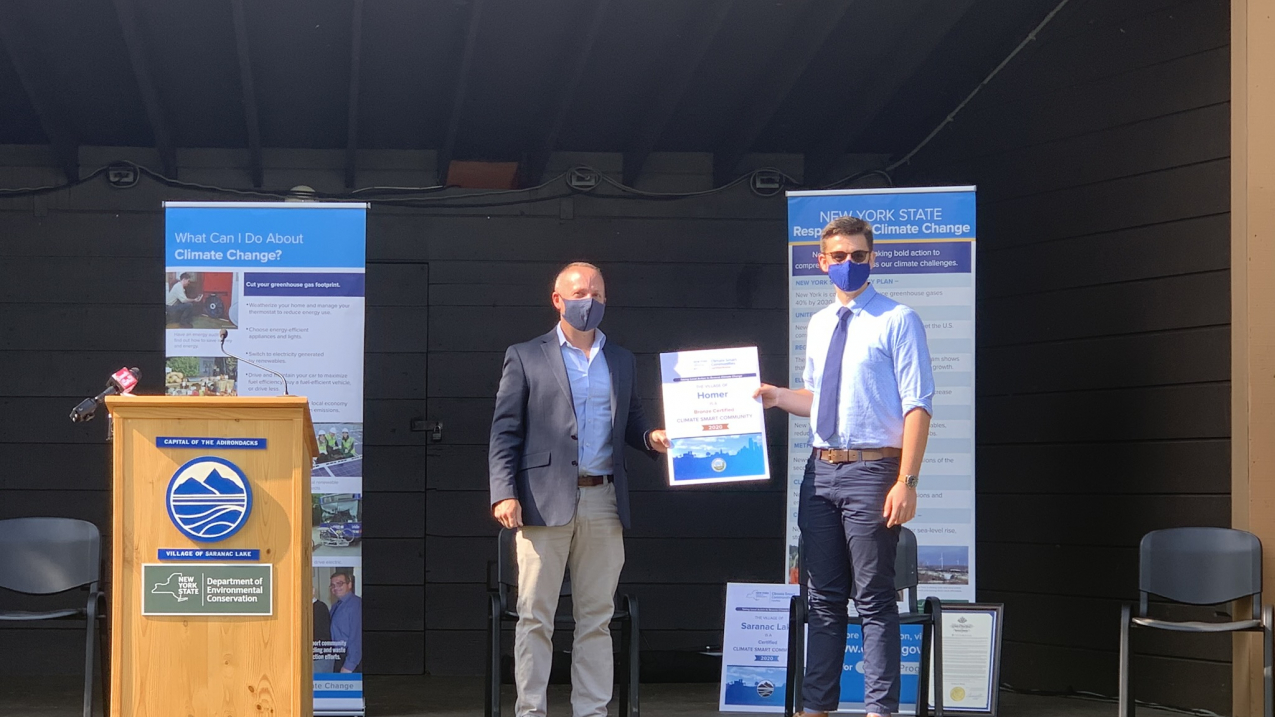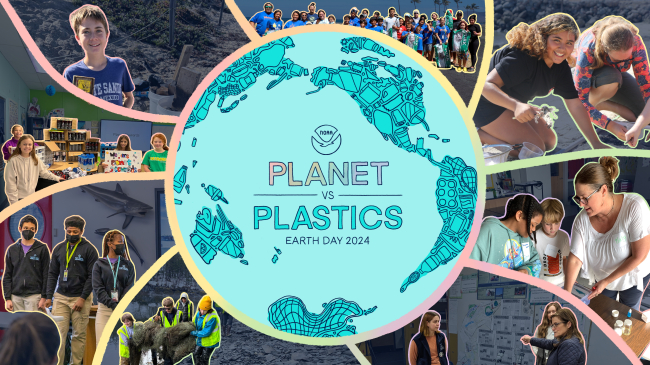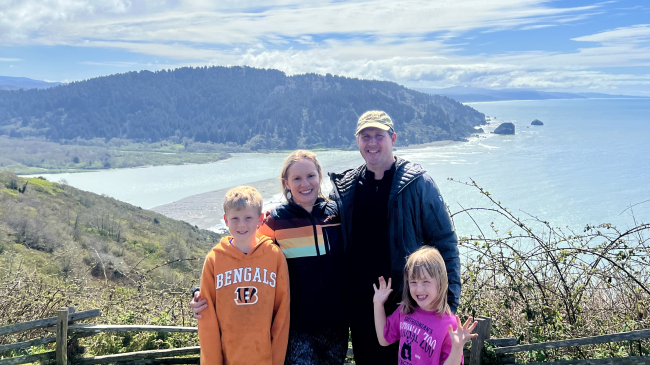Eight projects will engage youth and the public around extreme weather, climate change, and other environmental hazards.

Andrew Fagerheim, Youth Climate Leader and co-lead on the Climate Smart Communities Task Force for the village of Homer, New York, accepts the CSC Bronze Certification from New York State Department of Environmental Conservation Commissioner Basil Seggos. Over the past two years, youth leaders in Homer and Saranac Lake have provided valuable contributions, unique skills, and leadership to help their respective communities take action on climate change. Their enthusiasm and hard work helped both villages attain bronze level CSC certification during this round of review. The Climate Smart Communities program, in partnership with The Wild Center's Youth Climate Program, provides a positive pathway for these young people to collaborate with their community leaders to build climate resilience and design exciting, creative solutions for future generations. (Image credit: The Wild Center)
NOAA’s Environmental Literacy Program is funding eight projects that will use education to build the foundation for resilience to weather and climate hazards. Together, these projects - reaching from Hawaii to Maine - will receive a total of $3.5 million to empower people to protect themselves and their communities from environmental threats specific to their locale.
Recent environmental events underscore the need for resilience education. With the second most active Atlantic hurricane season on record, catastrophic fires in the west, and springtime severe storms and flooding, it is clear that all communities need to prioritize resilience efforts. However, successful resilience efforts cannot be limited to fortifying infrastructure and improving plans and policies; they depend on sustained and equitable public engagement (as articulated in the 2020 ELP Community Resilience Education Theory of Change). Projects funded through the Environmental Literacy Program not only build public understanding of how municipalities can become more resilient, but also enable people of all ages, socio-economic backgrounds, cultures and educational levels to take part in building safe and enduring resilient communities.
This is the fifth year that NOAA’s Office of Education is funding community resilience projects through its Environmental Literacy Program. Based on previous similar competitions in which there was extremely high demand for support of these types of projects, the 2020 competition was narrowed to solicit new projects from only the Southern and Western Regions of the U.S.. Additionally, phase two projects were solicited from those previously funded under the 2015-2016 funding opportunities from this program. Grantees were selected through rigorous peer review by a group of experts representing the fields of science education, resilience planning, and environmental justice.
The 2020 funded projects support local efforts to build community resilience. The projects incorporate local and state resilience plans and create new partnerships between K-12 and informal education institutions and government and nonprofit organizations working on resilience planning and implementation. The most pertinent environmental hazards and climate-related stresses facing these communities are addressed by these projects, such as sea level rise, severe storms, flooding, and extreme heat. All projects use educational approaches that develop community level environmental literacy to understand threats and implement solutions that build resilience to extreme weather, climate change, and other environmental hazards.
The funded projects use a variety of educational approaches that serve different audiences:
- Students building skills and credentials to enter the school-to-resilience-related job pipeline
- Educators and students working with planners to develop community-based resilience plans that protect vulnerable households and neighborhoods
- Students engaging in culturally relevant problem-based learning and implementing resilience action projects
- Underserved community members being empowered as environmental leaders and change agents.
- Rural youth engaging in programs that develop their leadership skills and demonstrate best practices for students and teachers to engage and partner with local municipalities on resilience planning
- Diverse coastal community members, whose social, economic, and cultural resources are threatened by sea level rise being educated and engaged through curricula, public forums, and innovative outreach strategies.
Funding amounts listed above are full federal award amounts for all years of the award. These eight projects are part of a growing community of practice of NOAA-funded community resilience education projects that includes nine projects funded in 2018, two projects funded in 2017, five projects in 2016, and six projects in 2015. For more details about the projects funded in 2020, please visit the awards webpage.



